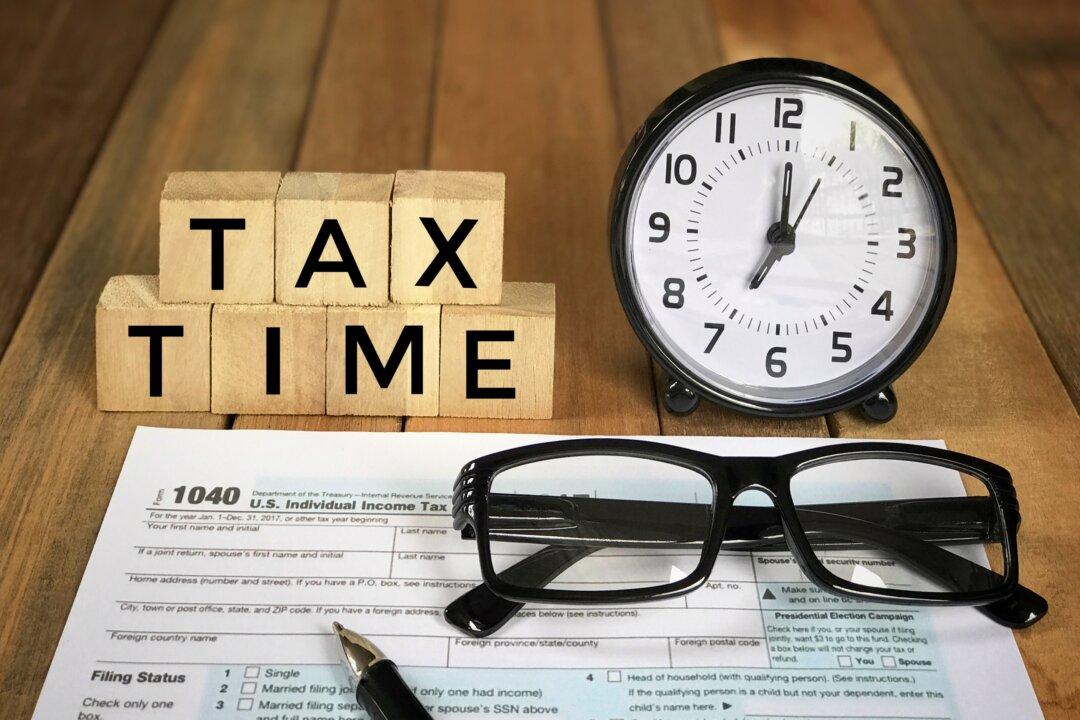Tax procrastinators be warned—Monday, April 18, is the deadline to get your taxes filed.
The Internal Revenue Service (IRS) began accepting 2021 tax returns in January. While Tax Day is normally April 15, Monday will mark the third year in a row the Internal Revenue Service has extended the filing date for federal tax returns.





